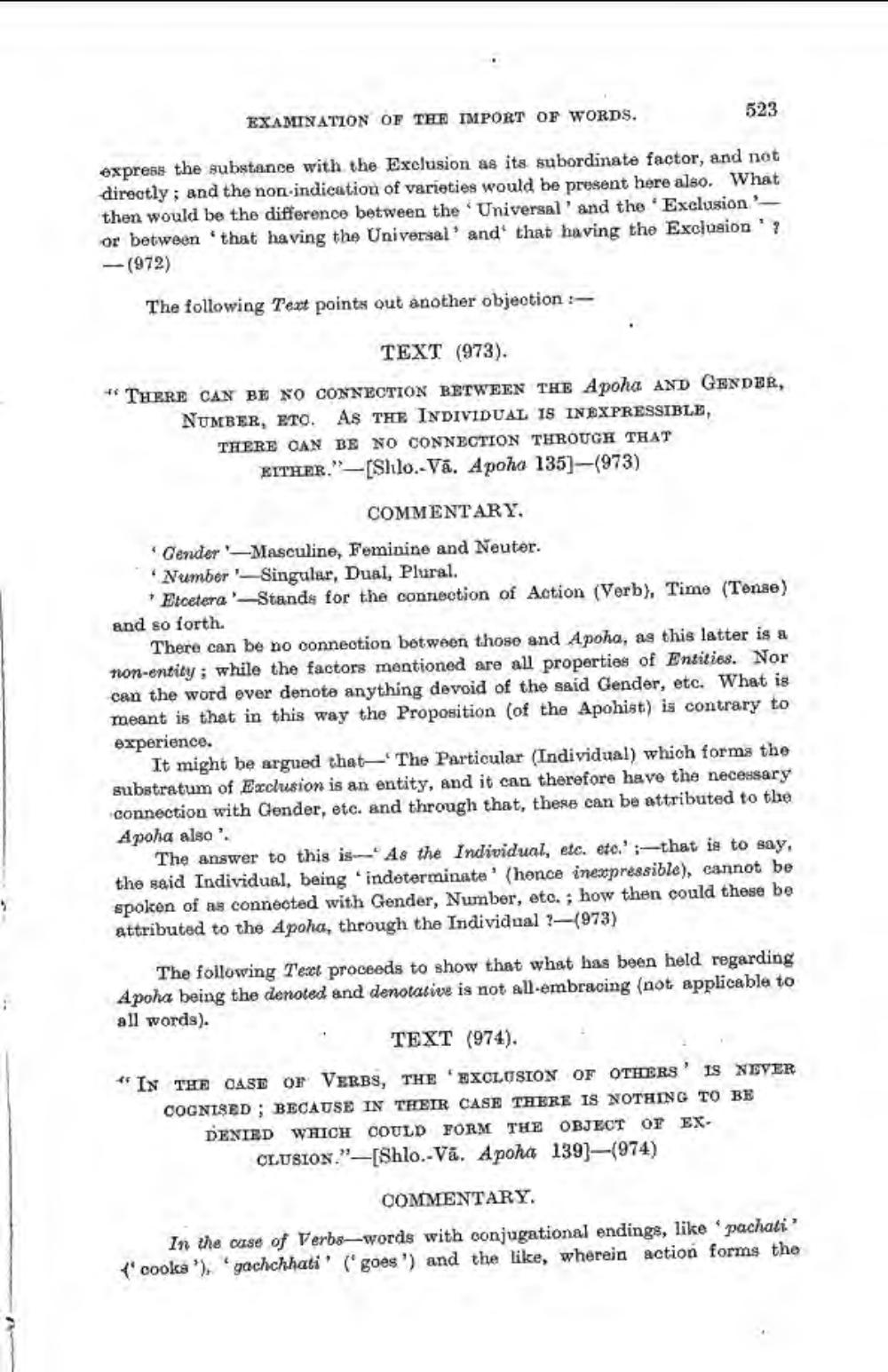________________
EXAMINATION OF THE IMPORT OF WORDS.
523
express the substance with the Exclusion as its subordinate factor, and not directly; and the non-indication of varieties would be present here also. What then would be the difference between the Universal' and the 'Exclusion' or between that having the Universal' and that having the Exclusion'?
(972)
The following Text points out another objection:
TEXT (973).
** THERE CAN BE NO CONNECTION BETWEEN THE Apoha AND GENDER,
NUMBER, ETO. AS THE INDIVIDUAL IS INEXPRESSIBLE, THERE CAN BE NO CONNECTION THROUGH THAT
EITHER."--[Shlo.-Vā. Apoha 135)-(973)
COMMENTARY. Cender-Masculine, Feminine and Neuter. Number -Singular, Dual, Plural.
Etcetera'Stands for the connection of Action (Verb}, Time (Tense) and so forth.
There can be no oonnection botween those and Apoha, as this latter is a non-entity; while the factors mentioned are all properties of Entities. Nor can the word over denote anything devoid of the said Gender, etc. What is meant is that in this way the Proposition (of the Apohist) is contrary to experience.
It might be argued that The Particular (Individual) which forms the substratum of Exclusion is an entity, and it can therefore have the necessary connection with Gender, etc. and through that, these can be attributed to the Apoha also
The answer to this is As the Individual, etc. etc.; that is to say, the said Individual, being indeterminate' (hence inexpressible), cannot be spoken of as connected with Gender, Number, etc.; how then could these be attributed to the Apoha, through the Individual 1-(973)
The following Test proceeds to show that what has been held regarding Apoha being the denoted and denotative is not all embracing (not applicable to all words).
TEXT (974).
"IN THE CASE OF VERBS, THE EXCLUSION OF OTHERS' IS NEVER COGNISED ; BECAUSE IN THEIR CASE THERE IS NOTHING TO BE DENIED WHICH COULD FORM THE OBJECT OF EX
CLUSION."—[Shlo.-Vā. Apoha 1397—(974)
COMMENTARY
In the case of Verbs-words with conjugational endings, like pachati' 'cooks'), gachchhati' ('goes') and the like, wherein action forms the




